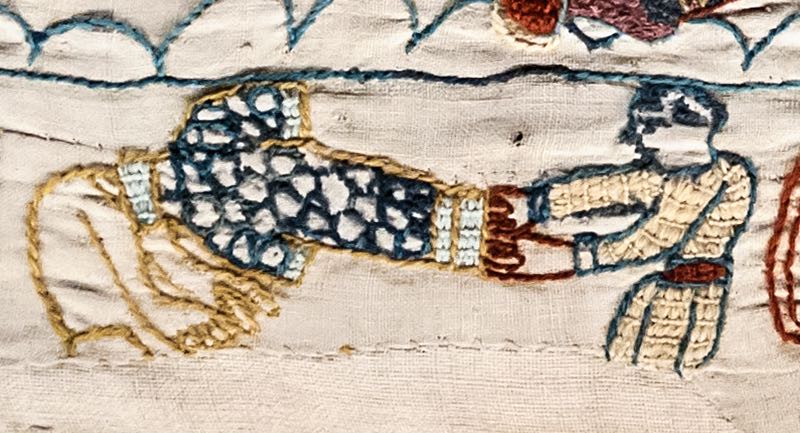words of a guard (sorry: corrections officer)

Here's a transcript from a corrections officer:
If you’re the second cop feeding breakfast in the morning, you would pour a beverage . . . . And so whenever we served cold beverages — I remember it like it was yesterday — many of the guys in there have tumblers with lids on it. And if they got a cold beverage and they hadn’t consumed that beverage when you would come back to them to take them out to the yard — and when you take them out to the yard you’ve gotta do this like full-body search inside their cells, all that, go through all their stuff — many times what I would witness is the guys would take their tumbler, if they hadn’t drank their beverage entirely, they would put the lid on the tumbler, and they would walk it over, and they would drop it in the toilet. And as a new cop, the first time I saw it, it blew my mind. I just didn’t understand what was going on, because you know, I’m the type of guy, you know, I’ll clean my toilet, but never ever would I consume anything that comes out of my toilet, right? It’s just not what you do. And so after I got a little more comfortable working in the environment, I remember I asked a guy, I say, “Now look, why are you putting your beverage in the toilet?” I say “That’s just not what normal people do.” And he said, “Robinson,” he say, “look.” He say, “If I leave my cup out here on the shelf,” he say “when I come back, I come back four hours later to a warm beverage.” He say, “If I put it in the toilet, that toilet water is cold, and it acts as a refrigerator. So when I come back, I come back to a cold beverage.” And so the tight confinement, toilets as refrigerators, it just really really honed my mind into thinking that I didn’t ever ever want to do anything in life where I put myself in a situation where I ended up being incarcerated in prison.
What's odd about this is how the language of cops is still affected by 1066, even a thousand years later and in a different country.
When the Normans conquered England, they brought their language with them, and it became the language of aristocracy (thus fanciness) and the language of law (thus officialness).
So the Germanic "underwear" isn't nearly as fancy as the French "lingerie."
So Harry Potter regular blokes are mostly named with good old Saxon names while the evil aristocrats are mostly named French (and classical) names.
So, if you wanna sound like a cop, you don't say, "Sir, please get out of the car." You say "Sir, please exit the vehicle." Exit, vehicle — words that came into English from Latin via 1066.
Read the officer's account here. It's a recorded interview. The cop is talking spontaneously, and very obviously in an informal setting. His other language shows that he's not some stuffed shirt. ("He say . . . .") And yet his diction oozes post-1066 officialdom.
Drink? drunk? see? No: beverage; consumed; witness. Scene, or setting, or just "there"? Nope: in the environment. "Drank it all?" Nope: drank their beverage entirely.
Locked up? Nope: incarcerated.
Fascinating!!

Comments